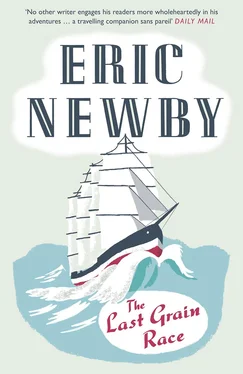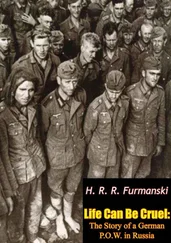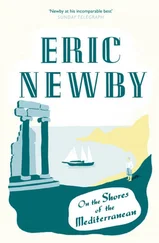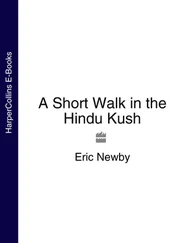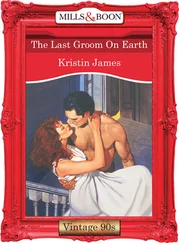‘We stop work at twelve o’clock on Saturday. He must be on board by six o’clock on Monday morning.’ I really thought that he was going to choke as the words came dragging out of his boots.
‘How sweet of you,’ said Lucy, going over him with a lovely smile. ‘I’ll pick him up here. Now, can he please show me the ship?’
I didn’t think that even Lucy could pull this one off but she did, inserting a parenthetic: ‘Perhaps you could come too. I am sure Eric knows very little about it.’
Both Mates escorted her to the car when she drove away. It may have been autumn in the York Dock, but over the deck of the Moshulu hung the expensive scent of springtime.
The boys crowded round. Just like school again.
It was Sedelquist who led the interrogation.
‘Who is hee?’
‘She’s called Lucy.’
‘Hee is very good. Hee is your friend?’
‘She’s all right,’ I parried.
Sedelquist persisted: ‘Hee is your girl friend.’ I pondered this, wondering why he had not said boy friend. I thought too of my diminished status, all the mistakes I had made in three short days: If we did not sail soon I should be a laughing-stock.
Sedelquist was about to ask the same question again.
‘Hee …’
‘Well, sort of,’ I said. ‘She’s a sort of aunt.’
Whatever the Scandinavian interpretation of ‘aunt’, it satisfied everybody. I was ‘noh strong’, but Lucy was my aunt and in the dark days to come, before I became ‘you strongbody’ and could take it out of other people, it was the respect that the crew had for her that kept the mass of them on my side whatever violent battles I might have to fight individually.
6
Sömmarström and his Sails
On Monday morning I was delighted to find that two more ‘foreigners’ had arrived on board and had been allotted to the starboard fo’c’sle. One of them, George White, was a tall thin young man from Massachusetts; the other was a young Dutchman called Jack Kroner who spoke fluent English. Both had signed on as apprentices, but Jack, who had been to sea before, had very sensibly evaded the premium which my father had been required to pay on my behalf, by arriving unheralded at the ship and striking a bargain on the spot.
Belfast after dark, into which we used to sally with Vytautas on modest porter-drinking expeditions, was a strange city, like a studio set for a Hitchcock thriller and equally deserted. The rain shone on the cobblestones and the wind howled down the dismal thoroughfares, rattling the glasses of the gas-lamps above our heads.
The only people we ever encountered off the main streets were numbers of apparently able-bodied men who would emerge from the shadows outside public houses and demand money. If not satisfied they would become abusive. One of the Finns who was being repatriated became so enraged by their attentions that he picked one of them up and threw him bodily into a glass shopfront. His departure was delayed for some days by this act, but he was saved from serious consequences by his ignorance of English and the ingenious plea put forward on his behalf that he had misunderstood the nature of the importunity. The four of us never had any compunction about refusing these requests for money as we had so little ourselves.
During these innocuous evenings spent in the snug of one of the less wild pubs we gradually drew up, to use the idiom of the times, a multi-lateral pact to resist those Finns and Swedes who already showed signs of becoming aggressive. Vytautas was not included in these arrangements. He had already made a round voyage in Moshulu and his position was established; besides, he had the happy temperament that did not attract trouble. Like other pacts in the world outside, to which we gave so little heed, it was to be rendered invalid by the loss of one of the contracting parties and the isolation of the remaining two, which made it impossible for one to help the other.
For the most part our thoughts were dominated by The Voyage. Sometimes, tired of the squalor in which we found ourselves, it seemed that we would never sail. It was Vytautas, by far the most resilient, who made us feel, by some reminiscence of life in the Trade Winds or in the high latitudes, that our present discomforts were bearable.
The last of the cargo was unloaded and the ship was warped down the dock to a deserted quay where we were to take on board our ballast stiffening for the voyage to Australia. There we cleared hundreds of blind baby mice from the frames in the hold; cleaned out the bilges which were filled with rotting grain and very smelly bilge-water, and set to work sweeping out the ’tween-decks. It was here that the accident occurred. The weather had been abominable and the open hatches were covered loosely with tarpaulins. In the ’tween-decks it was pitch black. We had two lanterns, and by the light of one of these George was sweeping with a will, working his way aft. Soon he was outside the circle of light thrown by his lamp; unused to the ’tween-decks, he stepped backwards over the tonnage opening below No 3 hatch and fell into the empty hold, hitting the keelson twenty feet below. When we reached him he was rigid, but still breathing. By the time we had got him out of the hold on a stretcher he was conscious and in pain. In the ambulance on the way to hospital he said. ‘I guess you’re going to have to do without me.’
One of his legs was broken and quite a lot of other things as well. He remained in hospital until December, two months after we sailed. It was a bitter disappointment for George; unlike the American of European imagination, he was not a rich young man. He had worked his passage to England and spent most of his savings to realise his ambition. I was downcast too. I had been long enough in the ship to realise that the confined space in which we lived would become very irksome once we were at sea. I was now deprived of my principal ally.
The following day Vytautas fell off the donkey house and broke an arm. Moshulu was dangerous for the unwary.
At the quay we took in our ballast, fifteen hundred tons of coarse dark sand used in the manufacture of pig-iron, huge lumps of paving-stone, granite blocks, and the best part of a small house. At the same time the stevedores added two dead dogs, but we did not discover this until we reached Australia in January, the hottest month of the year.
John Sömmarström, Sailmaker and Bosun of Moshulu , was a famous figure in the Erikson ships. If ever a man deserved the title of ‘shellback’ it was he.
John Sömmarström, Sailmaker
When I first met him he was fifty-eight years old and had been forty-three years at sea, all of them in sail, most of them in square rig. He had served in Scottish ships like Loch Vennachar in the 1900s and he had been for a time in the china-clay trade between Par in Cornwall and other West of England ports. In later years he had been Sailmaker in the barquentine Mozart which he described as ‘a cow’, the four-masted barque L’Avenir (he had served four years in L’Avenir when Erikson still had her), and a year in the Archibald Russell .
As I entered the sail loft I had an impression of a solid chunky man with spectacles set on a rather snub nose and a face covered with grey stubble. He was sitting in his shirt sleeves reading The Seven Pillars of Wisdom . In his mouth was a pipe that had gone out and on his head a unique hat. It was an ordinary grey felt hat, tweeked up in the middle like a scoutmaster’s, punctured with a number of holes that might have been made by bullets, intended, he said, to allow the air to circulate. I noticed that his fingers were rather stubby but that the nails were very finely formed. He had a wonderful smell about him compounded of hemp and Stockholm tar.
Читать дальше
